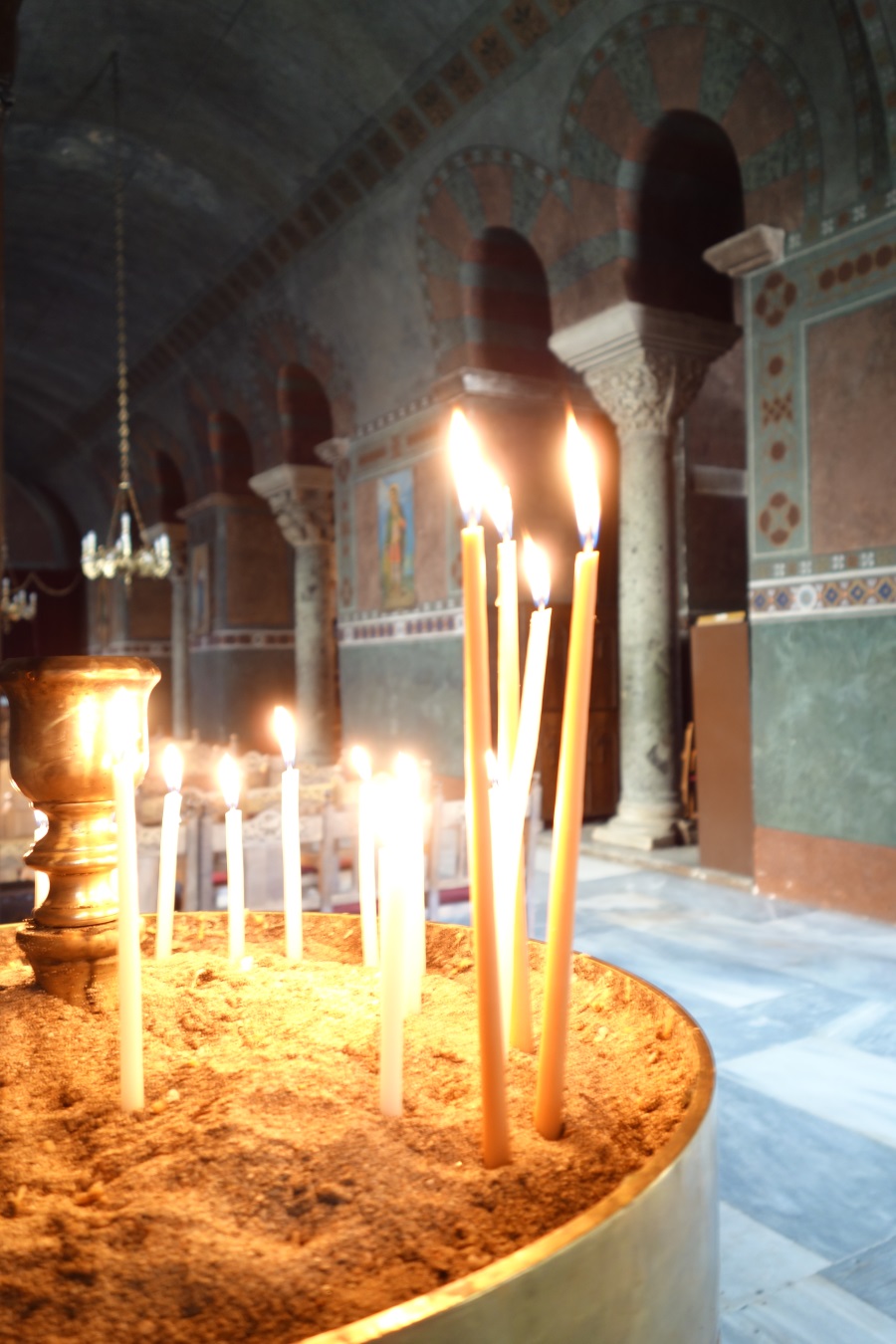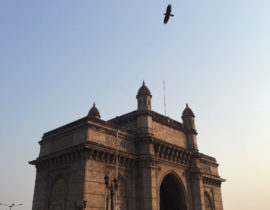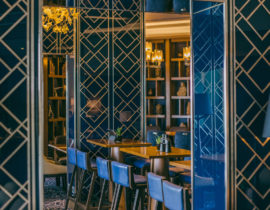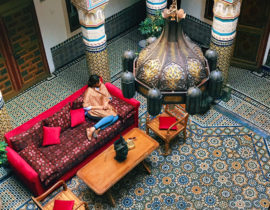Thessaloniki uncovers layers of history each as sweet as the indulgent honey-drizzled baklava piled up in its many buzzing cafes during my visit to Greece.
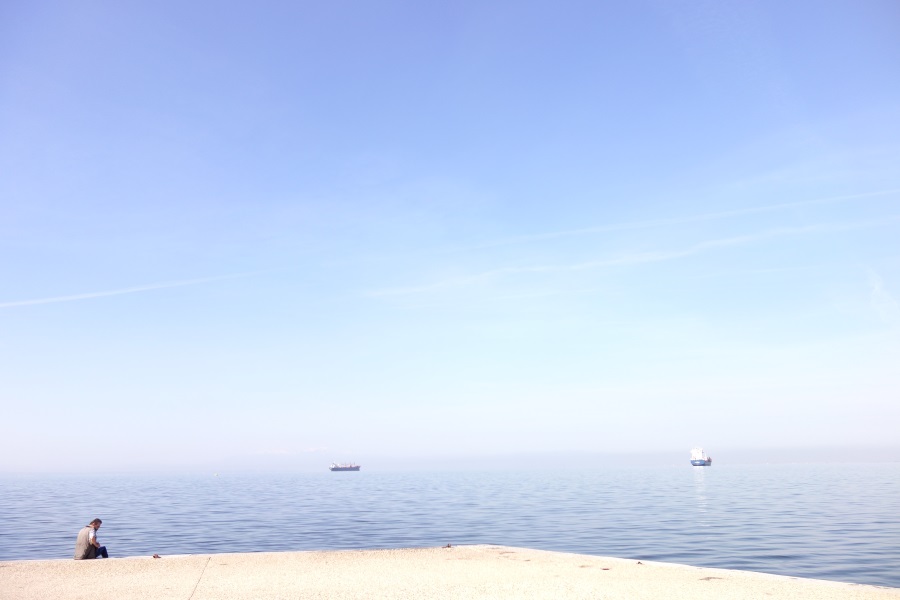
“Yamas, welcome to Salonica” chirped Eli as we clinked wine glasses toasting our health.
Plates full of falafel, salads with slabs of feta, and loads of decadent deserts, kept showing up on the table. It gets to a point where I feel I can’t possibly eat anymore, but then I dare to indulge in just one more bite of the orange slice draped in chocolate.
According to the grandmas of Thessaloniki, you must eat for your strength. “Food is connected with emotions, memories, love,” says long-time resident Sofia Bournatzi.
Food is a delicious reminder of all of those who have called Thessaloniki (known by locals as Salonica) home and brought along their culinary traditions. Honey, iced coffee (strong and bold and made popular during the Ottoman times) and spices are all on the menu.
“Like Mamas,” one waitress said as she plonked down a plate of phyllo pastries stuffed with feta.
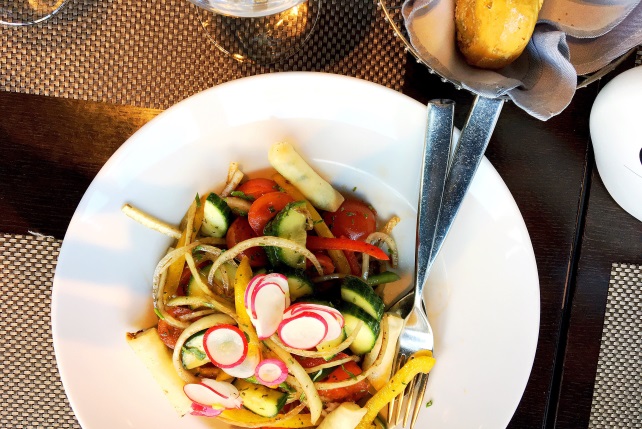
One of my first impression of the people of Thessaloniki is that they love to eat, drink and be merry, despite their worries about the economic crisis. Their hospitality is infectious and warm and that welcoming nature was a relief to the refugees who ended up on Greek shores. According to the International Rescue Committee, there are 50, 000 Syrian refugees living in Greece and even more still arriving.
Efi is originally from Lesbos and saw the refugees pile out of crowded boats, happy that their sea legs had reached land, but frightened and uncertain at what lay ahead. Moms clutched their babies and walked for miles in search of shelter. “I felt compelled to help,” Efi said. “We don’t have anything in Greece, but we had to help against all odds.”
Maria Chatziparaschi, Guest Relations Manager of the Mediterranean Palace Hotel, told me that life in Greece is still a struggle, with many working two jobs to make ends meet. Despite the challenges, the people of Thessaloniki are always ready with the welcoming mat. “It comes from the heart,” Chatziparaschi said. “It is in our genes. To want to make sure you aren’t troubled and have found your way in this city.”
Greece may be going through present troubles, but it is immensely rich in an ancient past. The challenge is how to maintain it in innovative ways. An old mosque is being transformed into a shining new metro station and the 15th century Alatza Imaret mosque hosts exhibitions. I intended to find these old Ottoman structures strewn about the city liked rust-colored gems. After setting out on foot (the best way to see Thessaloniki), I found myself trudging further uphill into a quiet residential area full of dreary apartments. Old ladies dressed in black, hovered over boxes of tomatoes as luscious as red painted lips, zucchinis and taut eggplants at the local shop. A mother and daughter walked ahead of me, carrying their groceries in plastic bags, looking at me curiously. I’m also wondering if I should abandon this endeavor, but then I turned the corner. A small plaza of gritty apartment blocks with balconies bulging with satellite dishes and Greek flags came into focus. A group of dark-haired little boys bounced a soccer ball around as I approached the looming mosque. Weeds with colorful flowers sprouted from its rounded terracotta roof; a beautiful touch among the state of disrepair. Arabic inscriptions rested above the entrance. Cuddly looking kittens, suddenly pounced in my direction as I tried to open a semi-opened door leading inside to its secrets, finally aborting my mission completely.
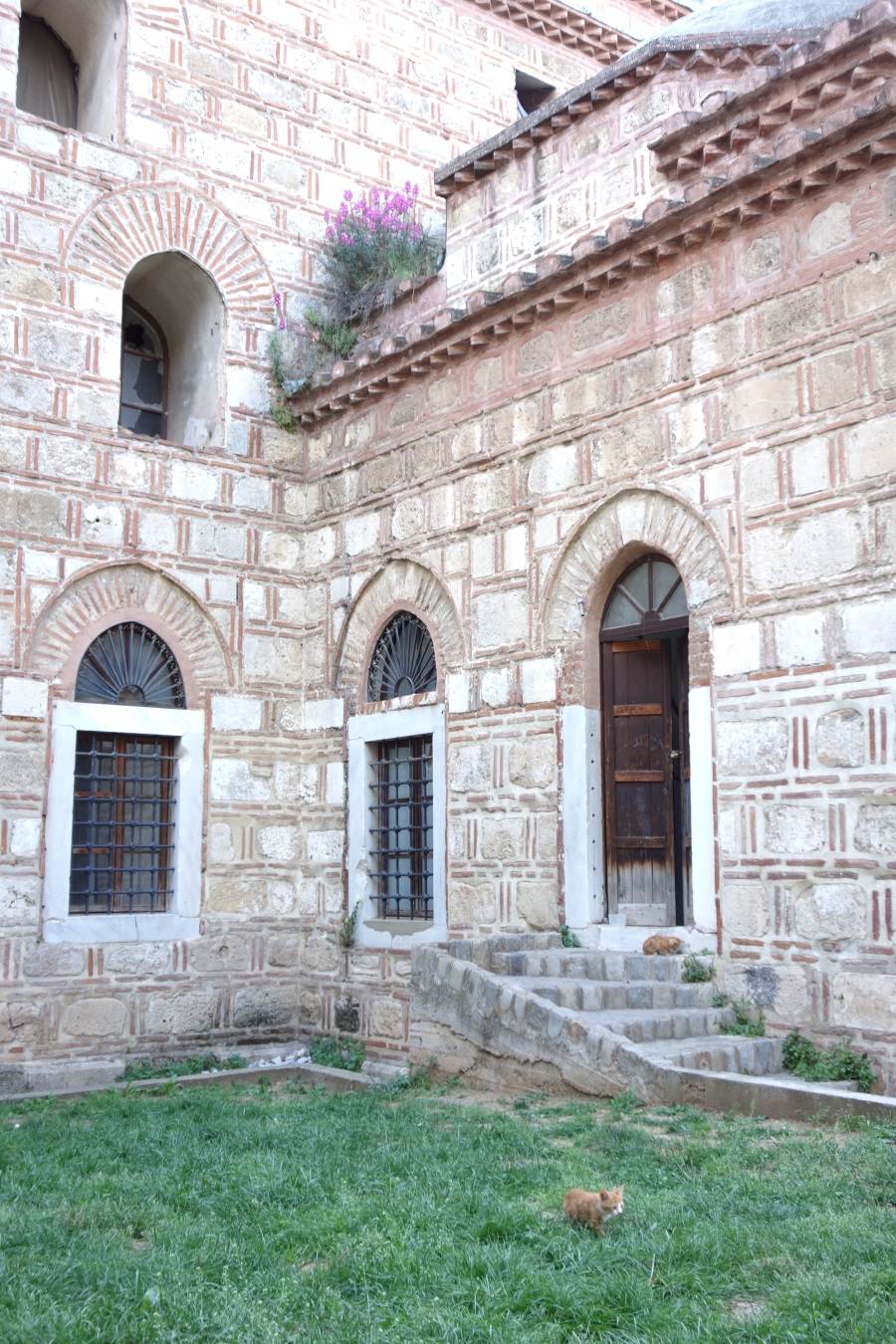
Thessaloniki is the Greece that not everyone thinks of when this country comes to mind, even though it is the second largest city. It’s a treasure trove of UNESCO World Heritage Sites that celebrate its Byzantine, Sephardic Jewish and Ottoman history. Thankfully, they felt welcome enough to stay and left their beautiful marks.
It’s a fascinating place where priests clad in long, black robes and flowing beards, saunter by, cellphone pressed to their ear. Young women sashay down the shopping avenues, perfectly primed. Former Olympic gold medalist and immaculately dressed Paraskevi Patoulidou warns me that Greek women do not leave their home even to go to the grocery store, without doing their hair and makeup. The Adonis-looking male students who gather in the cafes to chat and laugh over iced coffee, their cologne wafting into the warm summer air, must appreciate this extra feminine effort. How these lithe women manage to consume so many rox (pastries filled with mouth-watering chocolate) and sticky, gooey baklava, is a secret that I wish they would share with me. Efi, pretty in a slim-fitting black skirt, tells me that I wouldn’t believe how many sweets she eats in a week, her favorite being the cream-filled bougatsa.
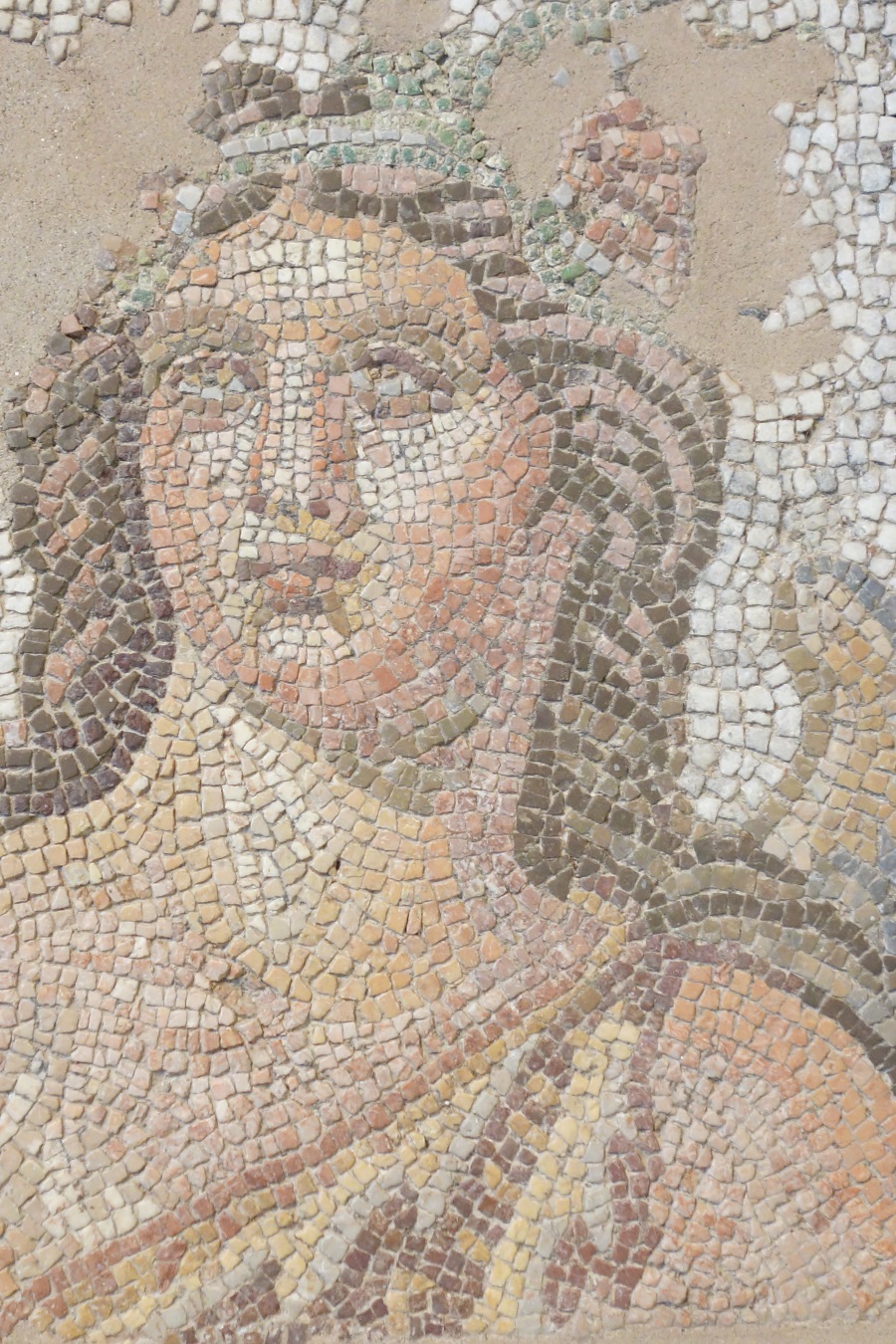
Macedonian good looks have been celebrated for centuries. “Women so beautiful that it hurts your eyes to look at them!” wrote 5th century historian Herodotus describing the Persians’ opinion of the ladies in the court of Macedonian king Amyntas.
The ancient Greeks set this standard in stone. Marble statues of Zeus and Aphrodite were unearthed at archaeological sites scattered throughout the region. See exquisite artifacts displayed at the museum in Dion that sits at the foot of the forest-covered Mount Olympus. Long ago they believed this to be the home of the god Zeus.
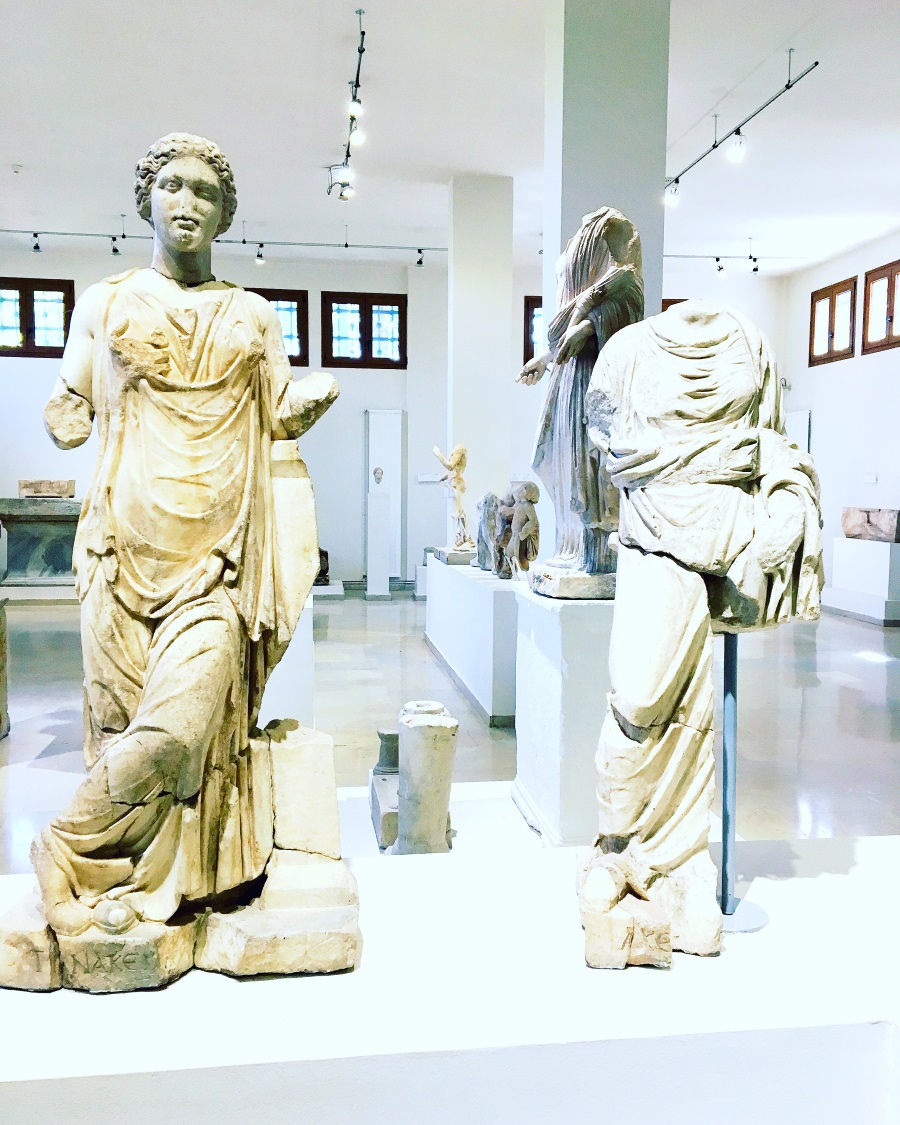
Back in the city, I descended underground where a former wealthy Roman’s home was uncovered during the excavations for the city’s new metro system. As I carefully wandered along the narrow, muddy path, a team of blue hatted archaeologists, buzzed around, gently sifting through the wet dirt in search of their next treasure. A gold ring and a large floor mosaic were found not long before my arrival, making me feel like a modern-day Indiana Jones. A cracked jug lay half uncovered at my feet and small zip lock bags with carefully labeled remnants of the past, lay in a pile near the exit. The lead archaeologist explained that the metro station’s completion date has been delayed because of all of these findings right under the busy city streets.
Above ground, dingy apartments, decked out with sprays of graffiti, are interrupted by the tiled domes of Turkish hammams and mosques that gently touch the clear skies. Thessaloniki is blessed with many a sunny day, a deep blue gulf that reaches out to the Aegean Sea, and inspiring mountains. A gift from the ancient Greek Gods. As one taxi driver described, “Thessaloniki is a slice of heaven.”
The city’s diverse cultural landscape was unhinged by the fire in 1917, destroying many of its mosques, minarets, churches, synagogues and countless homes, but some were spared. The 4th century Roman rotunda was once a mosque and today has the city’s only surviving minaret.
The calming Agia Sofia is smaller and simpler twin compared to Istanbul’s version. I sat on a plush, red velvet chair and craned my neck up above the alter where a mosaic of Mary and son hovered above. I wondered how many hours it took to painstakingly attach each tiny fragment of glass and stones to create such a glorious piece of art.
Churches are adorned with golden icons, shimmering chandeliers glittering in the dust speckled light. Orthodox priests, sing loving songs of devotion tucked away in the alter, eyes closed and arms raised in euphoric blessings. It’s hard not to get caught up in the rapture. Just outside wooden beams are knocked upon to call the faithful to prayer. A reminder of Noah calling the animals to his ship.
The 7th century Agios Dimitrios’ was once a mosque and returned to a Christian house of worship in 1912. Surviving 7th century mosaics of Saint Demetrius glitter in the darkened light. The exquisite nook off to the side is a beacon for the ill and weak who make the pilgrimage in hopes of a healing miracle, leaving small silver charms as token of their devotion.
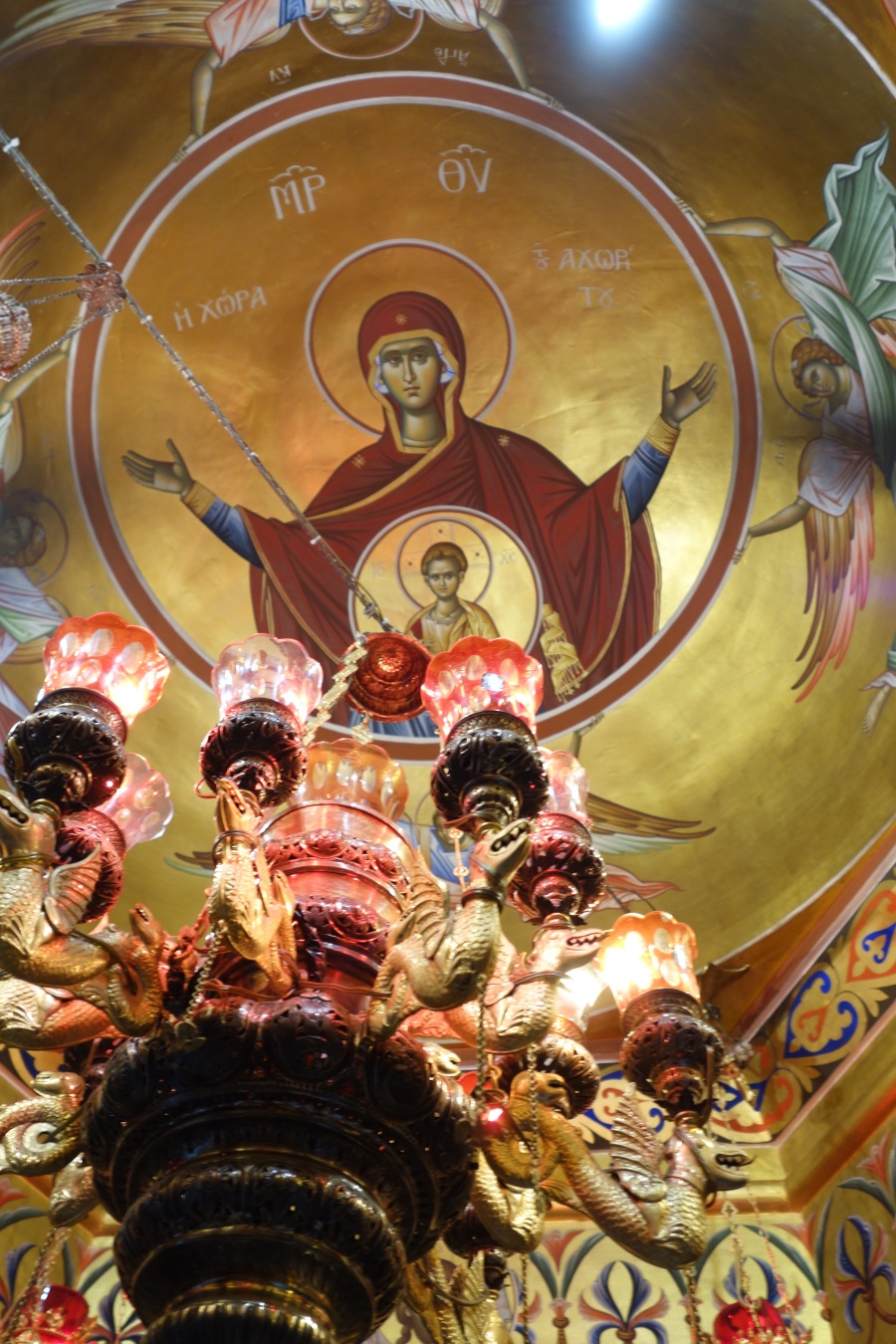
Thessaloniki residents are tough, friendly and resilient. This is the land of Alexander the Great whose empire stretched far and wide. It’s also home to an army of large, lethargic stray dogs and there’s one that won’t leave my side; surprising considering I have a childhood fear of canines. At first he lounges languidly in the hot morning sun at the foot of Alexander the Great’s looming statue along the seaside promenade near the city’s landmark, the White Tower. The story goes that the Macedonian king had a horse who was afraid of his shadow. Could this be the same creature, now reincarnated as this dog? My guide Sofia shrugs her shoulders, accepting this as fact, telling me that Thessaloniki is the city of ghosts.
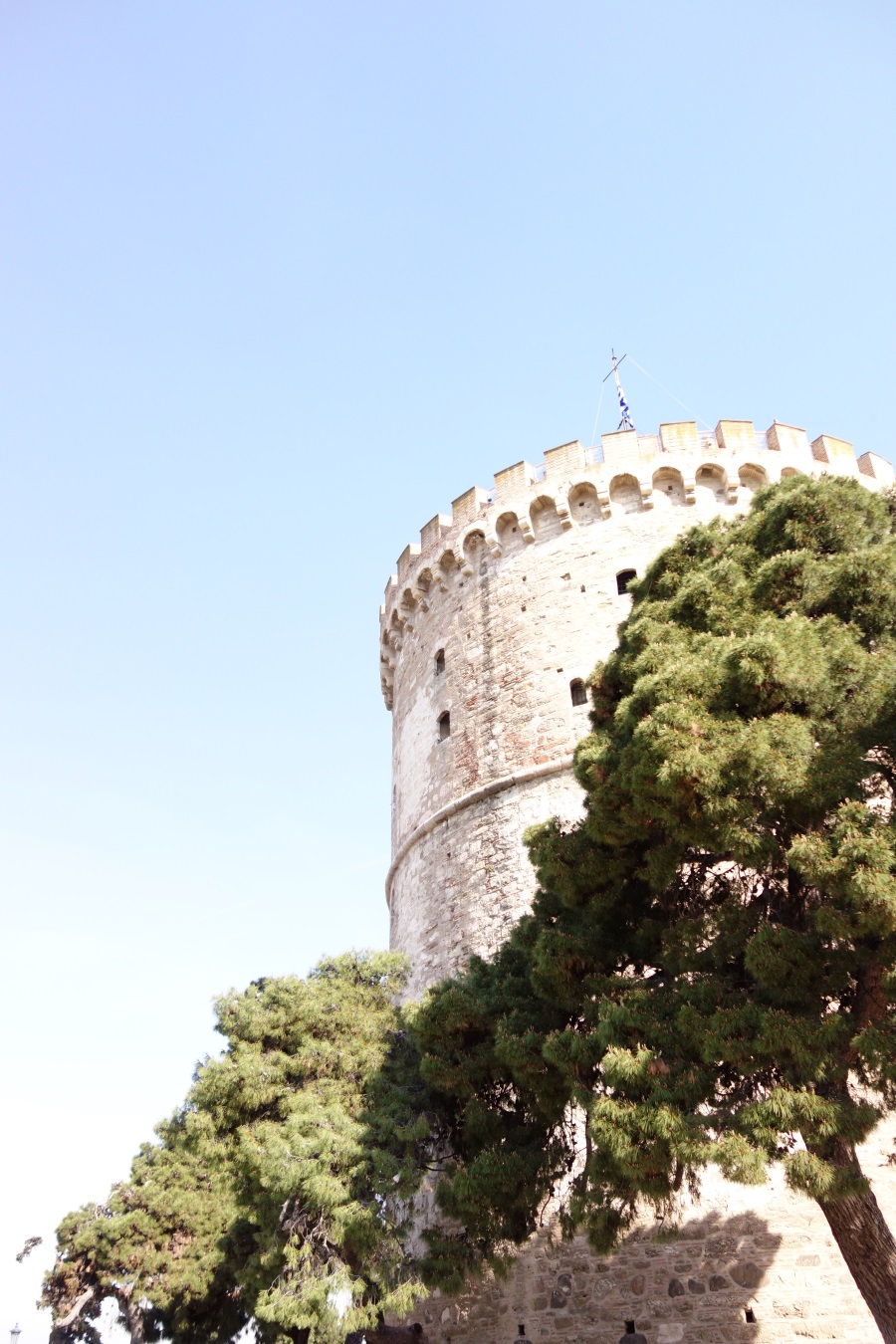
The stories of the past are everywhere if you look. A climb to the Ano Poli Ottoman neighborhood, reveals a warren of narrow lanes with churches, monasteries and the ancient acropolis, looking down upon its city from its heavenly perch. The scent of bursting white flowers perfumes the salty air and nudge up against pastel colored Balkan-style homes. I’m told that the Ottomans built the homes close to one another so that their wives could peek out the windows to gossip with their neighbors.
A Roma gentleman weaves his way through the twisting roads, announcing on a loud speaker that he’s collecting old appliances for recycling. Small bakeries sell Thessaloniki’s go-to morning breakfast-on-the-run, the sesame seed laden, carb-filled koulouri.
But I’m not in a rush. A shimmering mosaic of a young Jesus, sans beard, standing near the river Jordan, gleams down upon me at the Osios David Monastery hidden away along a quiet lane. A glorious gift to the almighty from early believers.
As the sun snuck higher into the sky, I tucked into the Vlatadon Monastery, suddenly embraced by its cool interior and mysterious aura. Dark grey walls, seemingly covered in a layer of soot from years of spindly candles’ smoke, created a blackened mask over the beautiful frescoes rising to the ceiling. I step back to allow a bent-backed old man to go into the small alcove where Saint Paul is believed to have preached. He crosses himself in front of the golden icon of the Saint and bows his head in prayer. I am treading on sacred ground which makes the stories of the Bible feel all the more real.
After stepping back into the glaring daylight, I felt soothed and serene, until the squawk of chickens interrupted my meditation. Proud, regal peacocks strutted from side to side while roosters pecked at the ground, unaware that they inhabited the best seat to admire Thessaloniki, sitting right down the hill, a hive of activity.
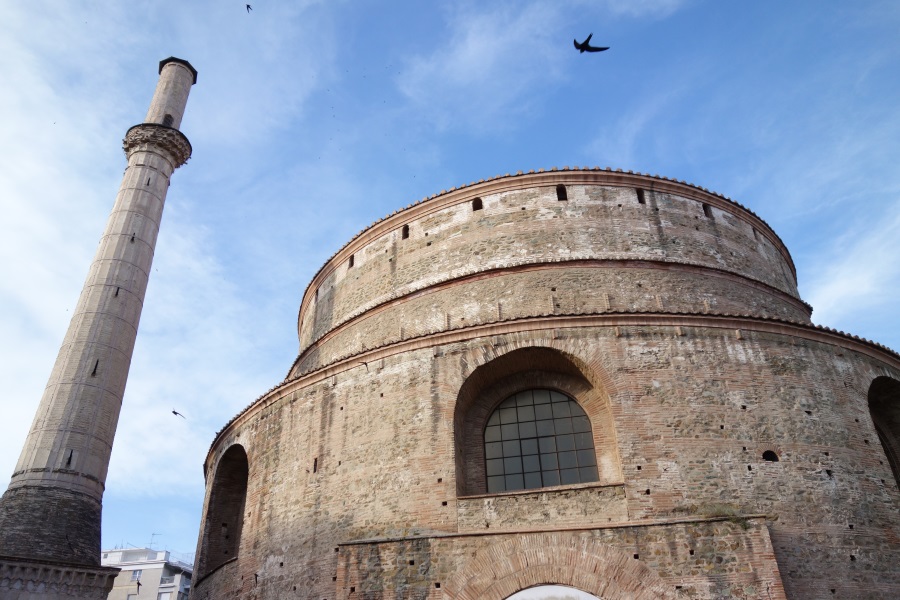
At the Acropolis, the highest point of the city, where the remaining defensive walls stand, a group of boisterous Italian students smoke cigarettes and chat. The Ottoman era wall is a hang out spot where the young and restless like to spend their time watching the cargo ships crawl their way through the Thermaic Gulf.
In the evenings (dinner doesn’t usually start till at least 9 p.m.), the city’s pulsating energy goes into overdrive. The bars and restaurants of the Ladadika district are brimming full. An incredibly lively impromptu traditional dance performed by men and women, young and old, swirls around near the old hammam, its music blaring from a CD player.
A seemingly sad song is strummed on an oud, emerging from the depths of an old lane that smells of seafood. The buzz in Art Deco-style Aristotelous Square is electric. Laughter and the clink of forks sound like Salonica’s version of a symphony. All of the cafes lining the square are jam-packed, reminding me of just how quiet life in North America is in comparison. The hazy water at the foot of the square takes on a pinky glow in the fading sunlight as Thessaloniki gets ready to welcome the night. A Roma woman in a billowing skirt sells shiny balloons to Syrian families passing by. I too feel like I belong here because so many have come to Thessaloniki and stayed.
